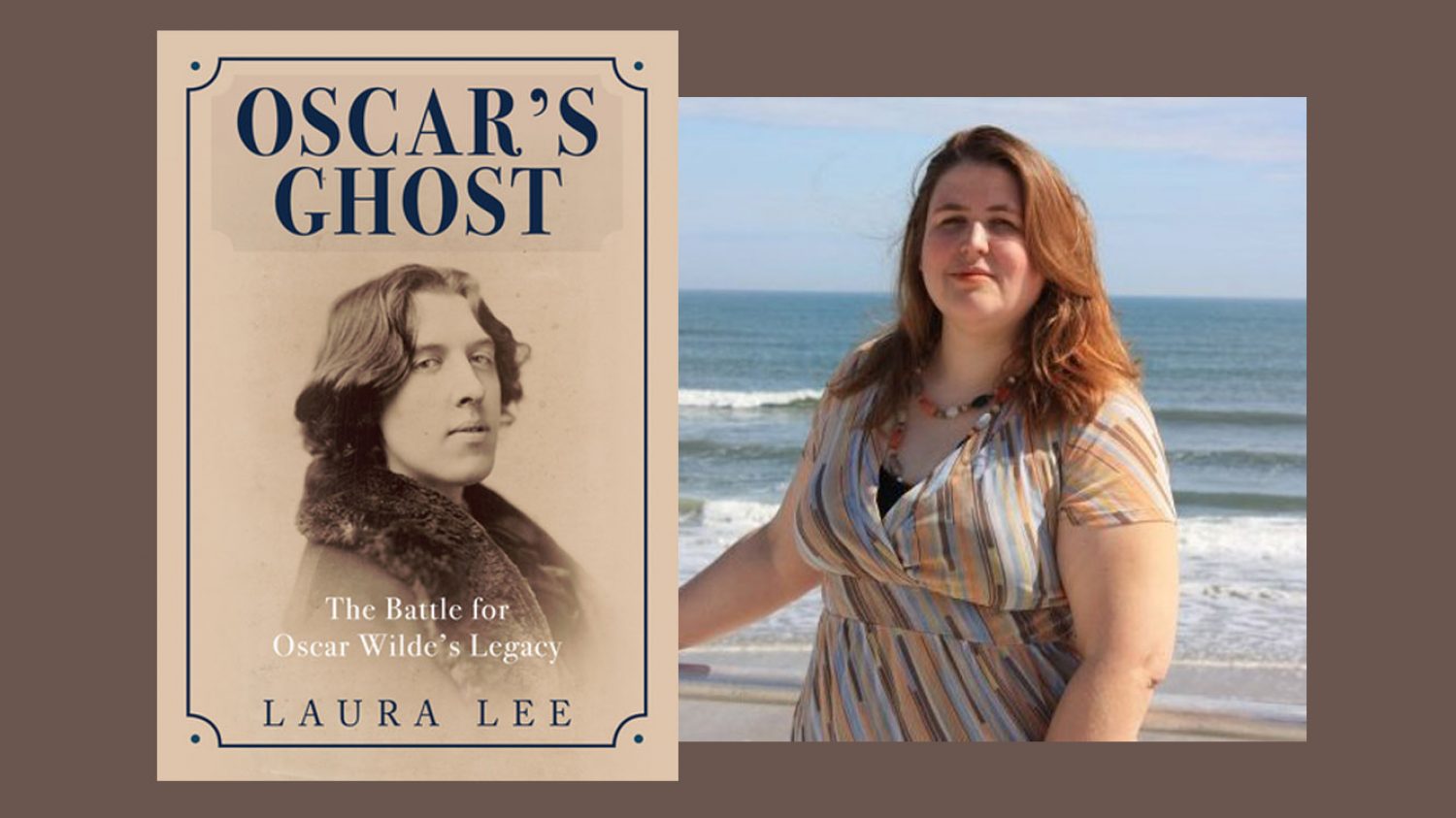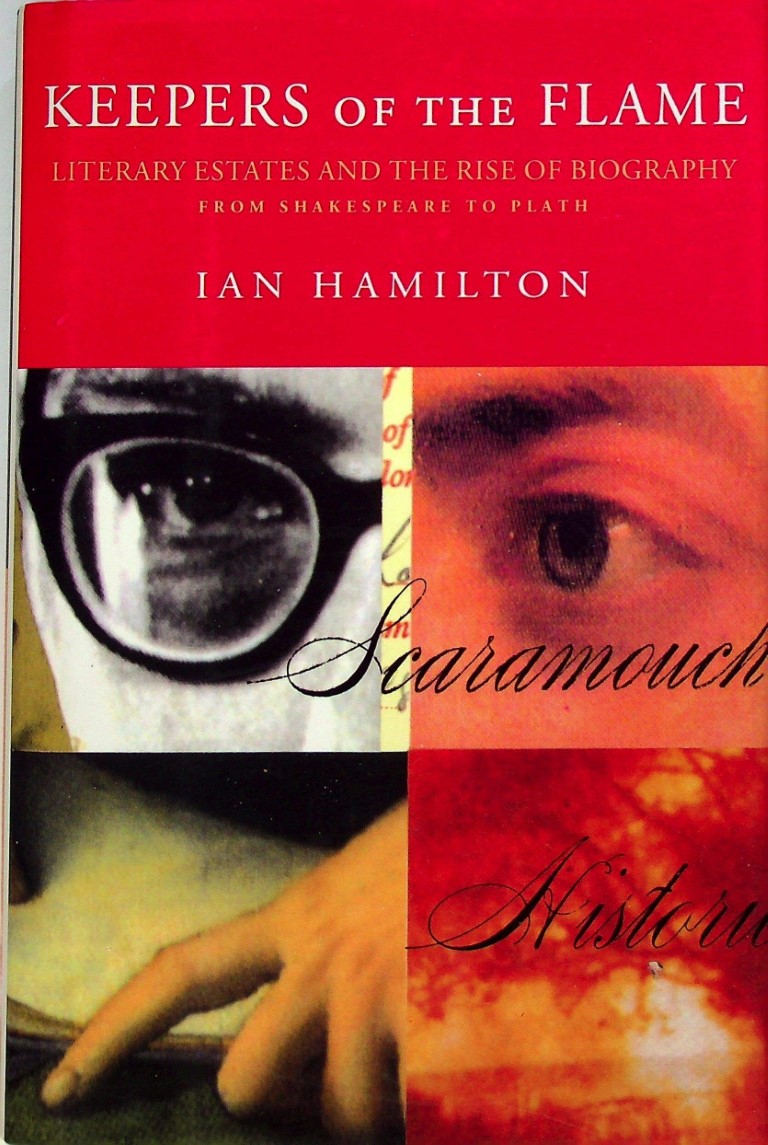When a great writer breathes his last, his literary life ends – there will be no more works from his pen. However, in many cases, it is at that moment of death that the legend begins. The posthumous life and reputation of an author can sometimes be as fascinating as the life itself.
I have just very much enjoyed reading Oscar’s Ghost: The Battle for Oscar Wilde’s Legacy by Laura Lee, an account of the battles between Oscar’s lover Lord Alfred Douglas and Oscar’s friend and literary executor, Robert Ross, over the blame for his downfall, the publication of Wilde’s prison letter De Profundis, and the truth of his friendships and loves. Most biographies of Wilde end with his death in Paris, but this book focuses on the feuds, machinations and even law suits that continued for many years afterwards. The book has been highly recommended by Colm Tóibín, but should come with a warning – it has tiny print which makes it hard to read – perhaps best ordered on an e-reader where you can enlarge the size.
Another excellent book on the topic of literary reputations is Keepers of the Flame – Literary Estates and the Rise of Biography by Ian Hamilton. It tells an absorbing range of stories about the posthumous treatment of authors, from the burning of Byron’s memoir (which probably told his version of what happened in his scandalous marriage), to Henry James’ attempts to ‘fix’ his own posthumous reputation, to Kipling’s dragonish wife Carrie who saw off any putative biographer who failed to please her, to the controversies surrounding Sylvia Plath’s estate.
It is a book that makes you think about the moral issues of biography, about what should and should not be destroyed (was it right that Kafka’s literary executor, Max Brod, refused to carry out Kafka’s wishes and burn all his unpublished works? Was Cassandra Austen right to burn her sister Jane’s more private correspondence?), and about how a writer’s life can be shaped for posterity.
Do you love to read biographies of writers? If so, have you thought much about the impartiality of the biographer and what agenda they might have? How impartial can a biography ever really be, when any writer will bring his own prejudices, tastes and preconceptions to the task before him? And if you knew that someone would write about your life once you are gone, what would you set about destroying immediately? Let me know by leaving a comment.
Comments are moderated, and will not appear until approved.
[DISPLAY_ULTIMATE_PLUS]


Melody
I’m just starting Eleanor Hogan’s new biography/account of the relationship between Daisy Bates and Ernestine Hill, both writers and intrepid women who travelled extensively in remote regions and camped with First Nations people. As part of her research, Eleanor bought a campervan and travelled many of the same routes as her subjects, and I think her perspective as a modern woman of a certain age travelling alone through the outback adds an extra layer to her analysis of the lives of her predecessors. The book is called ‘Into the Loneliness’, if you’d like to read it.
Susannah Fullerton
That sounds interesting. I know nothing of either woman. Many thanks for the recommendation.
Christine Bradfield
I am a big fan of biographies and I have just finished a very old biography of Oscar Wilde by Sewell Stokes. First published in 1955. It is titled, Beyond His Means, a novel based on the life of Oscar Wilde. So it is a bit unusual in terms of a biography as a lot of the dialogue and circumstances are imagined by the author. I don’t know how accurate it is but I found it a good read for a non-scholar like myself!
Have you or anyone else heard of it?
Susannah Fullerton
I haven’t read that book, but it is what is known as a ‘biographical novel’, telling the story of someone’s life in the form of fiction. I have read some excellent biographical novels, adn some dreadful ones. It all depends on the skill andresearch of the author.
Janet
Just imagine if Eugene O’Neill’s wishes were carried out and we never got to see Long Days
Journey…
I wrote a memoir and left out lots that I had no wish to share. But I don’t think any one would reveal the rest because my kids said they would probably not keep anything because it would be too hard to take the time to go through everything. When they said that, I realized I didn’t want all of the letters I wrote to famous people and their glorious responses to be lost forever, so that is why I decided to write my book.
Susannah Fullerton
Yes, I think there are strong cases where the wishes of the author should be ignored.
Janet, I suspect my children will do the same with all my papers – just turf them out!
john Power
Regarding the objectivity of a biographer, I understand that a standard practice in related fields such as Religious Studies is for the author to disclose his or her own situation, so that a reader can evaluate a book relative to the author’s position. In practice, many biographers are “known” authors, so a reasonably informed reader would know in advance what the biographer’s priorities are. There are often several biographies of the more famous characters, either literary or otherwise.
Susannah Fullerton
I guess a good way to discover a biographer’s standpoint is to read the Preface and see why that author decided to tackle a biography of a particular person. Otherwise all we can go by is reviews, and perhaps reading a variety of boigraphies of the same person so we can make up our own minds. But really getting at the true character of a person is very hard, and is inevitably going to be subjective in some way or other.
Maria
An author’s wishes should be respected so I think Brod was wrong not to carry out Kafka’s wishes regarding the burning of unpublished works. I’m not sure what Jane Austen’s wishes were regarding her private correspondence. If there weren’t clear instructions from Jane to destroy the correspondence, then Cassandra should not have done what she did. I understand that Cassandra’s motive was most likely to protect her beloved sister but she deprived subsequent generations from access to precious writing from a much revered author, who sadly died far too young.
Susannah Fullerton
I fear I’d have been like Max Brod and unable to consign all those manuscripts to the flames, no matter how much I knew the wishes of the author. I do so very much wish that Cassandra had not had her bonfire!!
Kristina
Gabriel Carey has written a biography on Elizabeth Von Arnim, where interestingly throughout the biography Gabriel is reminded of her own life stories and shares instances with the reader. It was an enjoyable read, practically getting two biographies for the price of one.
Susannah Fullerton
That sounds good. I recently just loved Elizabeth von Arnim’s ‘Enchanted April’.